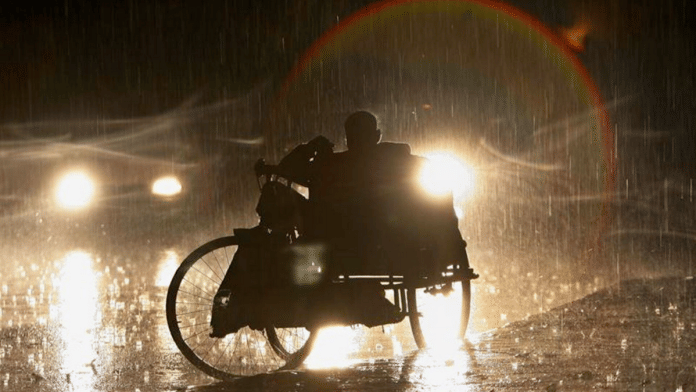Thank you dear subscribers, we are overwhelmed with your response.
Your Turn is a unique section from ThePrint featuring points of view from its subscribers. If you are a subscriber, have a point of view, please send it to us. If not, do subscribe here: https://theprint.in/subscribe/
When Prime Minister Narendra Modi suggested that persons with disabilities be referred to as ‘Divyang’ a Sanskrit term loosely translated as “those with divine abilities” the intention, at least on the surface, was noble. Moving away from terms that carried stigma, the government argued, would help foster dignity and respect for persons with disabilities. Language, after all, is powerful. It does not merely describe reality; it shapes our perceptions of it. Yet, nearly a decade on, the debate over ‘Divyang’ continues to generate passionate responses, particularly within disability rights groups. Does the term recognize dignity, or does it obscure the lived reality of disability by romanticizing it?
Words shape social attitudes. Throughout history, communities marginalized along gender, caste, race, or ability have fought to change how language frames them. In India, the word ‘Viklang’ meaning “incomplete limb” was long used to refer to people with disabilities, and it is easy to see the derogatory shadow it cast. Against that background, the shift away from viklang is in itself important. However, whether Divyang is the right replacement is another matter entirely.
By choosing the word Divyang, the state has replaced imagery of deficiency with imagery of divinity. The word implies that people with disabilities are “divine-bodied” and endowed with supernatural or special powers. In everyday life, this rhetoric can be seen as either patronizing or escapist. Most persons with disabilities are not seeking to be treated as divine or superhuman; they are struggling for very human—and very earthly—things: accessible buildings, inclusive education, job opportunities, healthcare, and social recognition.
The primary problem with the word ‘Divyang’ is that it romanticizes disability. It subtly erases the challenges and barriers that disabled persons face, reframing them in extraordinary, mystical terms. This recalls the trope of the “supercrip” often criticized in Western disability discourse the idea that disabled persons must either inspire society through exceptional achievement or be framed as noble sufferers elevated above human limitations.
The consequence of such framing is that ordinary struggles for equality get obscured. If someone is ‘Divyang’, why prioritize installing ramps in public offices, or providing sign language interpretation in classrooms? After all, a divine body presumably transcends ordinary barriers. The label may inadvertently reduce urgency around practical reforms by encouraging a feel-good symbolic recognition in place of structural change.
Global disability rights movements, including in India, have emphasized the social model of disability. This model asserts that disability does not arise merely from individual physical or sensory impairments but from systemic societal barriers architectural, attitudinal, and legal that hinder participation. From this perspective, language should not mystify disability as either deficit (viklang) or divinity (divyang), but rather as a condition shaped by social structures.
What persons with disabilities have consistently demanded are rights, not charity. The Rights of Persons with Disabilities Act, 2016, was a landmark moment in India’s legal landscape precisely because it moved toward a rights-based framework aligned with the UN Convention on the Rights of Persons with Disabilities. To then frame disabled people as ‘Divyang’ risks undoing some of that hard-won recognition by recasting a rights-bearing citizen into an object of veneration or pity masked as praise.
A person with disability struggle’s everyday for representation at the social, political and economic spheres. The state needs to ensure the greater participation of persons with disabilities in every sphere of mainstream society in order to break the notional stereotype that are most often created through the introduction of such misplaced terminology that in variably shatters the decades of effort to bridge the existing gap in the practices and implementation of existing policies meant for the welfare are development of the persons with disabilities.
Elected government needs to take corrective steps for making the socio- political and economic environment more inclusive and accessible for persons with disabilities rather than coming up with such terminology which comes across as tokenism and derogatory at many level, as it further alienate the persons with disabilities from the larger population of citizenry. If the elected government’s intent is genuine then it should certainly ensure and stress on proper implementation of accessible India initiative launched under NDA government. Government needs to actually facilitate proper, full and effective implementation of Rights of Persons with Disabilities Act 2016 in letter and spirit. Such efforts by the elected government of the day will validate its intent toward the Persons with disabilities.
Dr, Kunwar Siddarth Dadhwal
Assistant Professor
Chitrakoot School of Liberal Arts
Shoolini University, Solan, Himachal Pradesh


